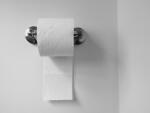What is urine retention?
Urine retention, or urinary retention, is a condition in which you are unable to voluntarily or completely empty your bladder. Your bladder is part of your urinary tract. Your urinary tract consists of your kidneys, two ureters (tubes that carry urine from the kidneys to the bladder), the bladder (an expandable organ that stores urine), and the urethra (the tube that carries urine from the bladder to the outside of your body).
There are also many muscles and nerves that help your urinary tract function properly. Urinary retention can be caused by problems with your urinary tract itself or by problems with the muscles and nerves that help control your urinary tract. Urinary retention can be acute and arise suddenly, or it can be chronic and develop slowly with time.
In chronic urinary retention, you are generally able to urinate to some degree, but it may be complicated by problems with starting and stopping, dribbling, frequent or urgent urination with little result, and a feeling of incomplete emptying of the bladder. In contrast, acute urinary retention is the complete inability to urinate despite having a full bladder. Acute urinary retention is a life-threatening condition and should be treated as a medical emergency.
Urine retention can affect both males and females of all ages. However, it occurs most often in men who are in their 50s and 60s, and the incidence increases with age. Men in this age group often suffer from benign prostatic hyperplasia (BPH), or enlargement of the prostate. The prostate surrounds the urethra and can obstruct or squeeze the urethra when it is enlarged, causing urinary retention. Other causes of urinary retention include infections, disorders of the bladder, injury or trauma, vaginal childbirth, side effects of certain medications, multiple sclerosis, stroke, and nerve damage.
Treatment of urine retention depends of the type, severity and underlying cause of your condition. You can help minimize your symptoms and your risk of complications by following the treatment plan you and your healthcare professional design specifically for you.
Acute urinary retention is a serious and potentially life-threatening condition. Seek immediate medical care (call 911) for serious symptoms, such as a sudden inability to urinate despite a full bladder, intense discomfort or pain in the abdomen or area above your pubic bone, and bloating in your lower abdomen or belly.
Chronic urinary retention can lead to potentially serious complications and should be evaluated by your healthcare provider. Seek prompt medical care if you, or someone you are with, have symptoms of chronic urinary retention, such as frequent urination of small amounts of urine, weak stream of urine, or a feeling of incomplete emptying of the bladder.
What are the symptoms of urine retention?
Chronic urine retention, or urinary retention, usually begins with mild symptoms that progressively worsen with time. In chronic urinary retention, you are usually able to urinate, but with some degree of difficulty. Symptoms of chronic urinary retention include:
Constant, mild bladder discomfort, which you can feel just above the pubic bone or lower abdomen
Difficulty in starting to urinate
Dribbling when not urinating
Feeling of incomplete bladder emptying
Frequent or urgent need to urinate with little result
- Nocturia (getting up at night to urinate three or more times)
Starting and stopping while urinating
Weak urine flow or stream
Chronic urinary retention can lead to potentially serious complications, so it is important to see your healthcare provider if you are experiencing symptoms of chronic urine retention.
Symptoms that might indicate a serious or life-threatening condition
Acute urinary retention is a serious and potentially life-threatening condition. Seek immediate medical care (call 911) if you, or someone you are with, have any of the following symptoms:
Bloating in your lower belly (abdomen)
Intense discomfort or pain in the area above your pubic bone (suprapubic pain or discomfort)
Severe anxiety
Sudden inability to urinate despite having a full bladder
What causes urine retention?
Urinary retention can be caused by problems with the urinary tract itself or by problems with the muscles and nerves that help your urinary tract function properly. Your urinary tract consists of your kidneys, ureters, bladder and urethra.
Nerves in your urinary tract tell your brain when your bladder is full of urine. Nerves from your brain then tell your bladder muscle to contract, squeezing out the urine, and the muscle of your urinary sphincter to relax, letting urine leave the body. Urinary retention can be caused by damage to or problems with any of these muscles or nerves. Obstruction or blockage of any of the parts of your urinary tract can also cause urinary retention.
Urinary retention can be categorized based on the cause of the problem.
Infectious and inflammatory causes of urine retention
Infections of the urinary tract can cause irritation and inflammation or swelling of the urethra. This can result in difficulty passing urine through the urethra and urine retention. Infectious and inflammatory causes may include:
Cystitis (infection and inflammation of the bladder)
Prostatitis (infection and inflammation of the prostate)
Sexually transmitted disease (STD)
Urethritis (infection and inflammation of the urethra)
Urinary tract infection (UTI)
Vaginal infections
Neurological causes of urine retention
Urine retention may be caused by damage to nerves and nerve pathways from a variety of diseases, disorders and conditions including:
Diabetes (chronic disease that affects your body’s ability to use sugar for energy)
Infections of the brain or spinal cord
Injury of the brain or spinal cord
Multiple sclerosis (disease that affects the brain and spinal cord causing weakness, lack of coordination, balance difficulties, and other problems)
Neurogenic bladder (bladder that does not empty due to nerve damage)
Parkinson’s disease (brain disorder that impairs movement and coordination)
Pelvic injury or trauma
- Spinal cord injury
Vaginal childbirth
Obstructive or physical causes of urine retention
Urinary retention may be caused by obstruction of the urinary tract or by physical problems with the urinary tract including:
- Bladder neck contracture (postoperative complication)
- BPH (benign prostatic hyperplasia or benign prostatic hypertrophy, which is noncancerous enlargement of the prostate gland in men)
- Certain cancers, masses or tumors
- Constipation or fecal impaction, which can compress the urethra until it is closed off
- Cystocele (abnormal positioning of the bladder which can drop into the vagina)
- Foreign body
- Rectocele (abnormal positioning of the rectum that can pull the bladder out of position)
- Urethral stricture (narrowing of the urethra usually due to scarring)
- Urethral valves
- Uterine prolapse (abnormal positioning of the uterus that can pull the bladder out of position)
Pharmacologic causes of urine retention
Many medications can cause urine retention by blocking nerve signals or interfering with muscle contractions. Classes of medications that can cause urinary retention include:
Anesthesias for surgery
Antiarrhythmics, which treat abnormal heart rhythms, such as disopyramide (Norpace) and procainamide (Pronestyl)
Anticholinergics or antispasmodics, such as dicyclomine (Bentyl), flavoxate (Urispas), glycopyrrolate (Robinul), hyoscyamine (Levbid, Levsin), oxybutynin (Ditropan, Ditropan LA), scopolamine (Transderm Scop), and tolterodine (Detrol, Detrol LA)
Antidepressants, such as amitriptyline (Elavil), doxepin (Sinequan), and nortriptyline (Pamelor)
Antihistamines, such as diphenhydramine (Benadryl), chlorpheniramine (Chlor-Trimeton), and hydroxyzine (Atarax)
Antihypertensives, which treat high blood pressure, such as hydralazine (Apresoline) and nifedipine (Procardia, Nifedical, Adalat)
Anti-parkinsonian medications, such as amantadine (Symmetrel), benztropine (Cogentin), bromocriptine (Parlodel), levodopa (L-dopa), and trihexyphenidyl (Artane)
Antipsychotics, such as chlorpromazine (Thorazine), fluphenazine (Prolixin), haloperidol (Haldol), thioridazine (Mellaril), and thiothixene (Navane)
Muscle relaxants, such as baclofen (Lioresal) and cyclobenzaprine (Flexeril)
Nonsteroidal anti-inflammatory drugs (NSAIDs), such as ibuprofen (Advil, Motrin), indomethacin (Indocin), and naproxen (Aleve, Naprosyn)
Opioid pain relievers, such as morphine (Kadian, MS Contin, Duramorph) and oxycodone (OxyContin, Roxicodone)
Other drugs including certain cancer chemotherapy drugs, isoproterenol (Isuprel), phenylephrine (Neo-Synephrine), pseudoephedrine (Sudafed), and terbutaline (Brethine)
Sedatives such as diazepam (Valium)
What are the risk factors for urine retention?
A number of factors may increase your chances of developing urinary retention, although not all people with risk factors will develop the condition. Common risk factors include:
- General anesthesia
- Infections of the urinary tract
- Injuries or trauma to your pelvis, brain, or spinal cord
- Male gender 50 years of age and older with BPH (benign prostatic hyperplasia or benign prostatic hypertrophy)
- Medications that cause urinary retention as a side effect
- Neurologic conditions that can affect the urinary tract
- Surgery involving the genitourinary anatomy
- Vaginal childbirth
Reducing your risk of urine retention
You may be able to lower your risk of developing urinary retention by:
Practicing proper urinary hygiene to prevent urinary tract infections (wipe from front to back, wash the area between the vagina and rectum daily, and urinating after sex)
Seeking early treatment for symptoms of urinary retention
Seeking prompt treatment for any diseases, disorders or conditions that could lead to urinary retention
Strengthening your pelvic floor muscles with pelvic floor exercises
Urinating when the urge is first felt
How is urine retention treated?
Treatment of urinary retention varies depending on the cause, severity, and other factors. Acute urinary retention is a potentially life-threatening condition and is treated with immediate catheterization to drain the bladder. Underlying causes of acute urinary retention can then be addressed.
Treatment of chronic urinary retention may include:
Catheterization
Dilation (opening or widening) of urethral strictures
Discontinuing or replacing medications that cause urinary retention
Surgical repair of bladder positioning or other pelvic problems
Treatment of BPH (benign prostatic hyperplasia or benign prostatic hypertrophy) to reduce prostate enlargement
Treatment of urinary tract infections or other infectious causes
When chronic urinary retention persists or when it is caused by permanent nerve damage, most people can safely manage their condition with self-catheterization. Your healthcare provider will teach you the proper technique to help avoid complications.
What are the potential complications of urine retention?
Urine retention can lead to serious and sometimes permanent complications. You can help minimize your risk of complications by following the treatment plan you and your healthcare professional design specifically for you. Complications of urine retention include:
- Adverse effects of treatment
- Chronic kidney disease
- Permanent bladder damage
- Progression of symptoms
- Spread of infection
- Spread of cancer
- Urinary tract infection (UTI)

















